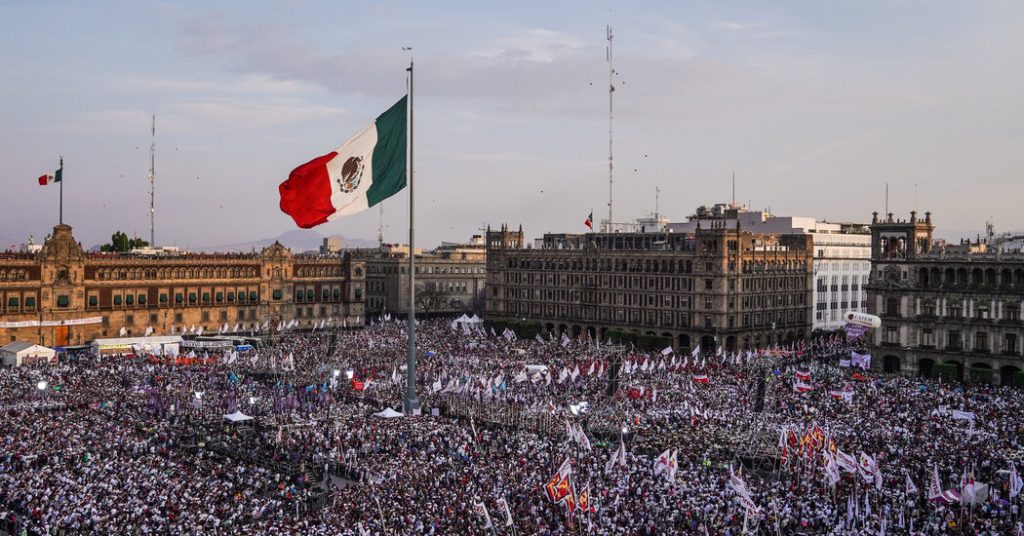Mexico is on the verge of electing its first female president, marking a historic moment in a country known for its machismo culture. The leading candidates in the race are Claudia Sheinbaum, a climate scientist from the Morena party, and Xochitl Galvez, an entrepreneur representing a coalition of opposition parties. This achievement is a reflection of Mexico’s complex relationship with women, who face violence and sexism but are also revered and trusted in positions of authority.
Mexico’s progress towards gender parity in politics is attributed to policies that opened doors for women at all levels of government. Feminist activists have pushed for inclusive laws, resulting in more representation for women in politics. In 2019, Mexico made gender parity a constitutional requirement across all branches of government, making it a model for other countries to follow. Currently, half of the country’s legislature is made up of women, and several key government positions are held by women.
The election of a female president in Mexico holds symbolic significance for many voters and candidates. Both Sheinbaum and Galvez acknowledge the importance of this moment for women in Mexico. The presence of a woman in the highest office carries weight and signals progress in the struggles for gender equality. While Mexico still faces challenges such as high rates of violence against women and gender pay gaps, the election of a female president is seen as a positive step forward.
Mexico’s aggressive implementation of gender quotas in politics has played a significant role in increasing female representation in government. Gender quotas have helped to ensure an even gender split in all branches of government, leading to the possibility of electing a female president. In contrast, the United States does not have gender quotas in politics, and its electoral system differs from Mexico’s.
The mass entry of women into Mexican politics comes amid demographic and cultural shifts in the country. Families now have fewer children, and more women are joining the workforce. Social policies promoted by the candidates, such as supporting women’s rights and LGBTQ+ rights, have sparked debates among conservative groups. Some feminists express doubts about whether the candidates will prioritize issues like domestic violence and the gender pay gap.
Despite challenges and skepticism from some groups, the election of a female president in Mexico could bring transformational change. A woman in the highest office could challenge traditional gender roles and patriarchal norms, sending a powerful message to Mexican women. While the extent of change remains uncertain, the presence of a woman in a position of authority signifies progress towards gender equality in Mexico.


